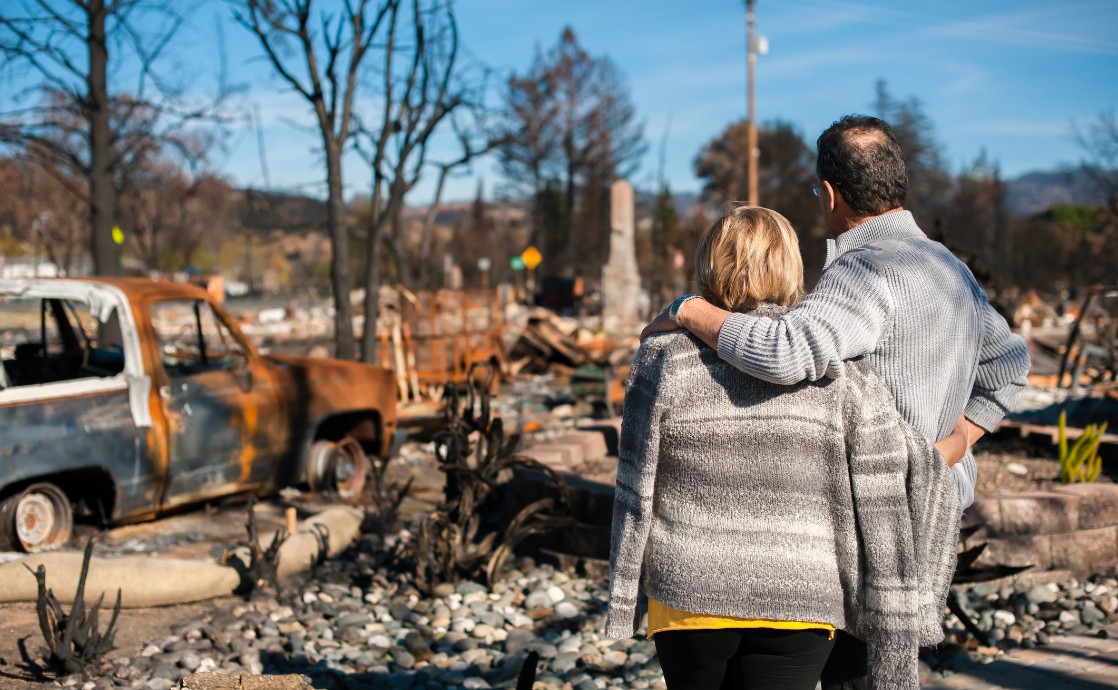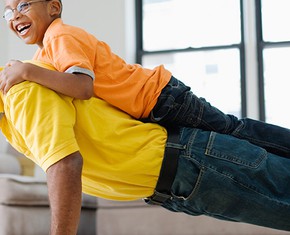The views expressed in our content reflect individual perspectives and do not represent the authoritative views of the Baha'i Faith.
As the calendar approached that Y2K day when the year 1999 would flip to 2000, denizens of the computerized world feared that entire virtual systems would shut down.
Because of how they were programmed to read dates, those systems seemed vulnerable to a global crash – which didn’t happen. But the first decade of the 21st century went on to produce myriad other disasters. In 2001, planes were flown into the New York World Trade Center, whose collapse led to a 20-year war with Afghanistan. In 2003, the United States invaded Iraq, starting another extremely costly war, in both deaths and dollars. In 2008 the world suffered a devastating collapse of its financial system.
RELATED: Overcoming Adversity by Building Resiliency
These weren’t the only tests of the human spirit during that decade. In fact, the many natural disasters prompted a research team, in which I participated, to explore how people responded across cultures and in diverse parts of the world when official systems collapse: The December 2004 tsunami that devasted parts of Phuket and Phang-na provinces in Thailand; the January 2005 torrential rains that flooded towns and villages on Guyana’s east coast; and the fall 2005 hurricanes – Katrina and Rita – that hit New Orleans and its environs, destroying levees and causing flooding that nearly wiped out the city.
RELATED: Why Does God Allow Illness and Suffering?
As a Baha’i, I particularly wanted to know more about the resilience and self-reliance that people naturally display after a disaster. In one of his talks in the United States in 1912, Abdu’l-Baha praised those human qualities of cooperation and association:
Some of the creatures of existence can live solitary and alone. A tree, for instance, may live without the assistance and cooperation of other trees. Some animals are isolated and lead a separate existence away from their kind. But this is impossible for man. In his life and being cooperation and association are essential. Through association and meeting we find happiness and development, individual and collective.
Our team visited these still-devastated areas during summer of 2006 to interview survivors about their preparations before and experiences during and after the respective disasters. We hoped to discover what they’d learned that might guide their future preparations. At that time, the only social science research I could find on responses to disasters focused on psychological trauma, coping, and first response.
None of the respondents across all the cultures we studied felt prepared for the unprecedented events they faced. In each disaster, water flooded homes and businesses, and government and aid groups didn’t and perhaps couldn’t respond for up to a week or more. All of the people we interviewed recounted how they escaped powerful natural forces, what they lost, and how they recovered.
By studying and interpreting data from hours of taped interviews, I sought to uncover crucial lessons learned, and perhaps discover an essentially spiritual pattern of resilience that might guide others in future crises.
In Thailand, the tsunami hit in tourist areas populated with hundreds of foreigners during the Christmas season. At first, all levels of government failed to provide water, shelter, food, medical care, electrical service, and police protection, so community members rallied to help each other via networks among friends, relatives, shopkeepers, divers, and hotel employees. The police neglected to announce that they’d designated temples, hotels, and schools as shelters, but respondents used existing communication networks without consciously noticing or even valuing them. Members of the lower social classes who often had crucial knowledge seemed unaware that they shared common goals and interests with the greater community. For example, a lifeguard said that when the ocean had receded 100 yards before the tsunami hit, it revealed sea creatures that mesmerized people who had never seen such things. He knew that a rapidly-receding ocean is one of the signs of an approaching tsunami, but wasn’t authorized to warn anyone, and knowing what was coming, he fled.
In Guyana, after two days of confinement in their homes without fresh water and electricity, people were frantic. For some, the only means of getting from their stilt houses to dry land was to hire teenagers who used overturned refrigerators as boats. The government didn’t declare a state of emergency, devise evacuation plans or shelters, or deliver relief supplies for up to two months. NGOs likewise were unprepared. But an interfaith group organized kitchens to cook for their neighborhood, and a Baha’i family arranged for the general store to distribute food hampers and cleaning supplies by boat. Many Guyanese seemed to value their community networks, but resented the lack of an official response, expressing distress and confusion about who should rescue them.
Religious groups and a coalition of public housing residents provided first responses in New Orleans, coordinating food and organizing evacuation. Some respondents pointed with pride to their strong community networks. For instance, we learned that the Vietnamese Catholic community had a particularly well-coordinated network who were “a community, not a group of neighborhoods” and “everyone knows who they need to listen to.”
Most would agree that families should stay together during disasters, but what about entire communities? A New Orleans Vietnamese Catholic community drove through the neighborhood in more than two feet of water, rescuing everyone from their homes and bringing them to the church where they stayed until ordered to move to the Superdome. Then, when buses began transferring people to Texas, the group returned to their local church so as not to risk losing elders who didn’t understand English. They helped each other clean up their homes, asked the city to turn the power back on, and within four weeks after the hurricanes moved back home, whereas eight months later many other neighborhoods remained abandoned.
It appeared that those who were the best prepared and recovered most quickly were those who worked in a unified way within their established communication networks of friends, families and neighbors. It seems, then, that a united community where individuals trust and respect each other – whether neighborhood, religious, work or social – provides the strongest safeguard against disasters.
Those who know their neighbors can readily identify talents and designate leaders, as well as watch out for the vulnerable. Interpersonal communication networks – attractive because of their emotional and spiritual ties – provide the best staples during disaster recovery.
I concluded, after our research, that people everywhere need to become consciously aware of their communication networks – that is, the actual interpersonal relationships in their communities and neighborhoods – by maintaining contact and identifying what qualities, skills, and resources everyone can offer.
RELATED: Do Disasters Have a Purpose?
If you haven’t done so already, you can begin this process by asking who are the nurses, mechanics, cooks, teachers, faith leaders? Who are the vulnerable? This kind of inventory of informal, interpersonal communication networks is one of the best provisions you can make for disaster preparation and recovery. Although relief agencies are the “first responders” from the outside, the victims are a first and crucial part of the chain. Agencies should coordinate with communities’ disaster preparation plans so that if they intervene, they can identify, support and assist rather than disrupt existing networks. As the Baha’i teachings point out, we can best survive and thrive when we cooperate reciprocally:
The supreme need of humanity is cooperation and reciprocity. The stronger the ties of fellowship and solidarity amongst men, the greater will be the power of constructiveness and accomplishment in all the planes of human activity. Without cooperation and reciprocal attitude the individual member of human society remains self-centered, uninspired by altruistic purposes, limited and solitary in development like the animal and plant organisms of the lower kingdoms.
Perhaps the most necessary component for post-disaster survival is a willingness to cooperate and become aware of the existence, usefulness and power of mutually helpful networks. Communities fared better where, before a disaster, members knew each other, had already collaborated, and had built a structure whose leadership they recognized and trusted. Such relationships, I learned, can literally become matters of life or death.
















Comments
Sign in or create an account
Continue with Googleor